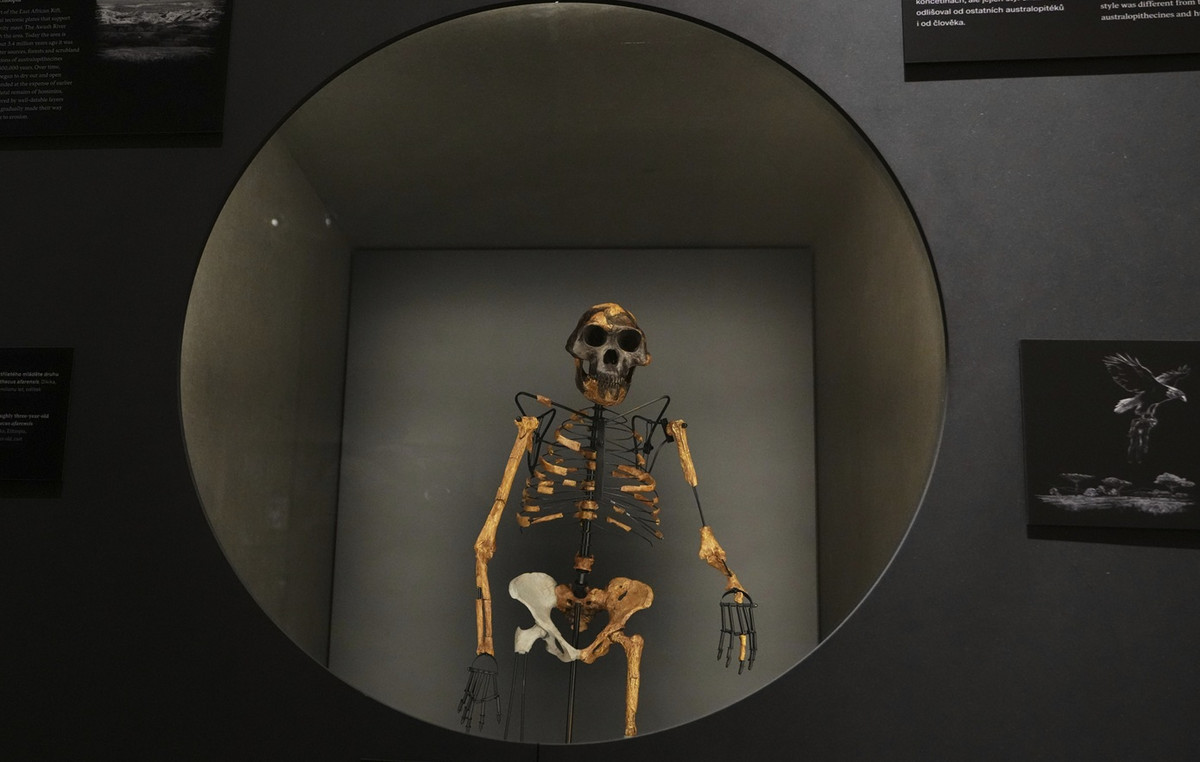Growing up in Texas, Mary Beth Walsh thought she was used to high temperatures. Her hometown of Dallas, which is currently being hit by unrelenting heat, frequently experiences heat waves.
But when the 21-year-old visited Athens in mid-June with her friends, she was shocked by the “unbearable” 37C heat she faced. “I actually had no idea how hot it was until we got there, which was quite surprising,” she told CNN .
“I always joke that I have a very high heat tolerance; I bring my sweatshirt with me to class in August,” she said.
But the apartment where she was staying did not have air conditioning and temperatures were too high during the day to explore the city on foot. “Our energy levels were lower than we thought they would be,” she said. “It was unbearable to walk in the direct heat.”
The sweltering summers brought on by the climate crisis in Europe are now a reality that many tourists are waking up to. Interest in visiting the hottest Mediterranean countries has waned in 2023 due to record heatwaves and wildfires, with more temperate destinations becoming increasingly popular, experts say.
Recent heat-triggered deaths and disappearances in Greece, including that of British television personality Michael Mosley, have the potential to further fuel this shift north, as incidents of extreme heat influence vacation decisions.
The degree to which the travel industry and tourists can adapt to the rising tide of climate impacts has become a greater problem for southern European countries, many of which rely on tourism to boost their economies.
Night shift
Recent high temperatures have put the climate crisis in the spotlight for some European tourists.
“The climate crisis that we feared would happen in 10 or 15 years’ time is already here in some parts of the world. That’s the scary part,” said Roo Clark, 28, from Suffolk in eastern England, who is currently staying with his girlfriend on the Greek island of Skyros. to CNN.
“Five years ago, my friends and I wouldn’t even have talked about it (climate change), but now it’s more of a conversation.”
Greek authorities have repeatedly warned tourists not to underestimate the intense heat, especially in the middle of the day. Hiking in high temperatures has been a common thread linking recent deaths in the country.
Temperatures in Greece are expected to hover around 30C in the coming weeks, a few degrees above the summer average, according to meteorologists at CNN except for one to two days when there should be rain, lowering temperatures.
Stefanos Sidiropoulos, who runs Greece’s biggest travel agency specializing in outdoor activities, said tourists should not head straight for activities. “People who come from northern Europe, or Canada, places with colder temperatures, it is more difficult for them. They need time to adapt to these conditions,” he said to CNN .
Sidiropoulos’s travel agency, Trekking Hellas, now offers some activities when temperatures are cooler, such as during sunrise and sunset. “Or at night, with torches,” he adds.
Addicted to tourism
The influence of climate change on the places where tourists spend their holidays will have serious repercussions for some countries that depend on travelers’ income.
In Greece, tourism contributes almost US$41 billion – about 20% of the country’s entire economy, according to the World Travel and Tourism Council.
In Italy, where level three heat alerts — the highest alert — were recently issued for the cities of Rome, Perugia and Palermo, tourism represents 10% of the country’s economy, according to the most recent figures, with one in every eight jobs linked to the sector.
Following the 2023 European summer heat wave, which sent thousands of people fleeing wildfires on the Greek island of Rhodes, there was a 7% increase in reported concerns about climate change among European travelers, according to the European Travel Commission (ETC), a non-profit association. responsible for promoting Europe as a travel destination.
This followed a decline in interest in southern Mediterranean holiday locations between the summers of 2022 and 2023, with cooler destinations such as the Czech Republic, Bulgaria and Denmark becoming more attractive, ETC told CNN .
“Travelers are increasingly aware of extreme weather events and their potential impact on their vacations,” Eduardo Santander, CEO of ETC, told CNN adding that in the future this could result in more travelers visiting southern Europe during spring and late autumn rather than during summer.
For now, Santander said tourists’ concerns about climate change are likely to be relatively short-lived. “Travelers are worried after the summer, but tend to forget about these events when they book their next vacation in the spring,” he said.
‘Full of bites’
Extreme heat is a consequence of the impact of climate change on tourist attractions across Europe. But there are others.
Warmer conditions caused by climate change are pushing populations of disease-carrying mosquitoes into new areas of Europe, according to the European Centre for Disease Prevention and Control (ECDC).
Clark, the tourist currently staying in Skyros, said mosquito numbers were very high during the heatwave in early June.
“We were absolutely swarmed with bites. There was no wind and even though we got sprayed, they still found a way in,” Clark told CNN . “It was definitely the light winds and high temperatures that caused this.”
A key mosquito species that can transmit dengue, chikungunya and Zika viruses, called Aedes albopictus, is now established in many European countries, including Greece, Italy, Portugal and Spain, according to the ECDC.
Andrea Ammon, director of the ECDC, said travel could contribute to the expansion of the species’ range. “Increased international travel from countries where dengue is endemic will also increase the risk of imported cases,” she said in a statement.
Last year, the ECDC recorded 130 locally acquired dengue cases in Europe, compared to 71 cases in 2022.
There have been no cases of locally acquired dengue reported in Europe so far this summer, the ECDC told CNN but based on trends from last summer, they expect the first cases to be reported in the coming weeks.
A human case of West Nile virus infection, transmitted by the native mosquito Culex pipiens, was reported in the Spanish province of Seville in March, according to the ECDC. Last year, the organization recorded 713 human cases of locally acquired West Nile virus infection in nine EU countries, resulting in 67 deaths.
Adapting to the ‘new normal’
Last summer’s record temperatures around the world were driven by a combination of human-caused climate change and the return of the natural phenomenon El Niño, which causes warmer global temperatures.
This combination has pushed temperatures to record levels in parts of Europe, the fastest-warming continent on the planet.
But even if El Niño’s impacts wane, experts say the long-term trend of global warming will continue. “Climate change is tilting the odds in favor of more extreme events happening more frequently and then becoming more severe,” Rebecca Carter, director of climate adaptation and resilience at the World Resources Institute, told CNN .
She added that the high number of tourists in some regions of Europe is putting pressure on already hard-pressed local authorities as they juggle the need to keep residents protected from the high heat as well as protect visitors.
Carter said the travel industry needs to consider climate adaptation. “It’s something I don’t think the travel industry is thinking about as much as it should be,” she said, adding that booking rules could be more flexible for flights and hotels, for example.
“When people plan these trips, it’s weeks or months in advance and there’s no way to predict when a specific place will experience extreme heat.”
Some tourists, such as parents whose children are in school, have less flexibility when deciding travel plans, Carter said. In these circumstances, she said planning was key: “What would you do if there was an extreme heat wave and the power went out? Can you map out in advance where you would seek help?”
Sidiropoulos of Trekking Hellas agreed that future planning was important, but he wanted visitors to still get out and appreciate the beauty of Greece’s culture and natural world.
“I always tell people who are traveling, ‘Don’t stay in the hotel and just do classic things like go to a restaurant,’” he said. “You have the opportunity to see nature … and to see the authentic side of our country.”
Source: CNN Brasil
Bruce Belcher is a seasoned author with over 5 years of experience in world news. He writes for online news websites and provides in-depth analysis on the world stock market. Bruce is known for his insightful perspectives and commitment to keeping the public informed.







